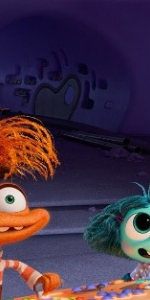
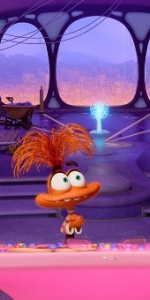

Inside Riley's Mind Again: A Journey Through Complex Emotions
As someone who fell head over heels in love with Pixar's first foray into the colorful and chaotic world of Inside Out, I approached Inside Out 2 with a giddiness akin to a kid entering a candy store. The original protagonist, Riley, is no longer the wide-eyed pre-teen we once knew but is now navigating the tumultuous waters of her teenage years. Equipped with a whole new set of emotions, her internal world is both complicated and fascinating.
The Return of Familiar Joy
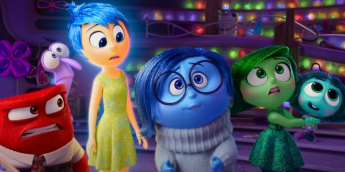
Amy Poehler once again voices Joy and brings the same effervescent energy fans have come to adore. Despite the added complexities of Riley's new emotions, Joy remains a central figure, trying her utmost to maintain equilibrium in a mind that seems to be constantly shifting. Poehler's performance imbues Joy with a nuanced understanding of teenage challenges, providing heartfelt moments that are sure to resonate with viewers of all ages.
Enter Anxiety and Envy
Maya Hawke's introduction as Anxiety is a masterstroke. Her voice acting encapsulates the wavering uncertainty and heightened sense of caution that teenagers often experience. Ayo Edebiri’s Envy is another standout, bringing a sly, sharp-edged wit to the emotional lineup. These characters mirror real-life complexities, adding authentic layers to Riley's inner struggles.
Riley's Evolving Mindscape
Visually, Inside Out 2 does not skimp on creativity. The mind's "Headquarters" undergoes a transformation reflecting Riley's growth, with new rooms and complex labyrinths that symbolize her advancing emotional development. This visual metaphor is deeply engaging, making it clear that teenagehood is not just a phase but a significant milestone in emotional maturity.
Laughs and Tears in Equal Measure
Phyllis Smith’s Sadness, Lewis Black’s Anger, and Tony Hale’s Fear return with their impeccable comedic timing, but what’s new is the depth of their emotional arcs. Watching them navigate new dynamics with Anxiety, Envy, and other newly introduced emotions provides both hilarity and bittersweet moments. The balance of humor and emotional depth is expertly maintained, ensuring the film never feels too heavy or too light.
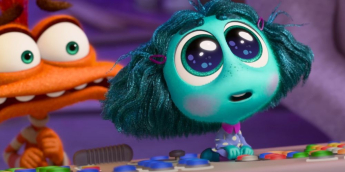
Disgust and Embarrassment: More Than Comic Relief
Liza Lapira’s Disgust and Paul Walter Hauser’s Embarrassment provide more than just comic relief this time around. Their roles are expanded, delving into the often overlooked but pivotal teenage experiences of social faux pas and peer pressure. This development adds a richer texture to the story and makes the emotional ecosystem within Riley’s mind feel more complete.
Old Friends, New Struggles
Riley’s interactions with her childhood friends and new acquaintances like Valentina (voiced by Lilimar) and Grace (Grace Lu) offer a prism through which her internal struggles are reflected. Their presence and the forming of new social dynamics make for a compelling subplot, highlighting how external relationships influence internal emotional states.
The Metaphor of 'Ennui'
Adèle Exarchopoulos voices Ennui, an emotion that epitomizes teenage indifference and philosophical musings. Her portrayal is subtly profound, serving as a metaphor for that phase where life’s greater questions start to creep in, often uninvited. This nuanced character adds a touch of sophistication to the narrative, making the film not just a children’s story but a truly multi-generational experience.
Parents Are People Too
Diane Lane and Kyle MacLachlan reprise their roles as Riley’s parents, and their characters are given more depth this time. They are not just background figures but are intricately woven into the storyline, depicting the challenges parents face in understanding their teenage children. Their interactions with each other and Riley add a layer of realism that many will find relatable.
Coach Roberts and School Dynamics
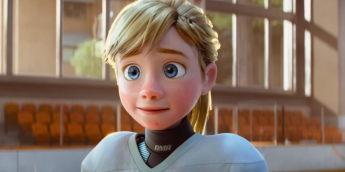
Yvette Nicole Brown’s Coach Roberts is a delightful addition, portraying the supportive yet firm figure that many teens encounter in their formative years. Her presence underscores the importance of mentors outside the family sphere, adding another dimension to Riley's emotional journey.
A Clever Cameo: Ron Funches as Bloofy
Ron Funches lends his voice to Bloofy, a whimsical character that serves as a reminder of childhood's simpler times. This cameo provides a poignant contrast to the more complex emotions at play, reminding viewers of the innocence that still exists within Riley’s mind.
Artistry and Music
Visually, the film is a treat for the eyes, with vibrant colors and imaginative settings that pop off the screen. The musical score complements the storyline perfectly, enhancing the emotional swings from joyful highs to somber lows. It's evident that every detail was meticulously curated to create an immersive experience.
Diversity and Representation
The voice cast is more diverse, with talents like Sumayyah Nuriddin-Green and Lilimar bringing authenticity to characters from different backgrounds. This adds layers of relatability and reflects the real-world complexities of growing up in a multicultural environment.
Enriching Emotional Intelligence
One of the film’s standout aspects is how it educates its audience on emotional intelligence. By personifying complex emotions and presenting them in an accessible way, Inside Out 2 serves as both entertainment and a teaching tool. It encourages viewers to understand and navigate their own emotional landscapes better.
A Story for All Ages
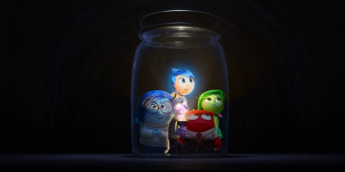
While primarily aimed at younger audiences, Inside Out 2 transcends age boundaries. Its intricate storytelling, combined with relatable themes, ensures that it resonates with teenagers dealing with their own emotional rollercoasters as well as adults reflecting on their formative years.
Final Thoughts
Inside Out 2 is a triumphant exploration of the chaotic, perplexing, and incredibly rich world of teenage emotions. It masterfully combines humor and pathos, ensuring that both younger audiences and adults walk away with something valuable. If you adored the original, this sequel is a must-watch, expanding the universe in ways that are both meaningful and entertaining.
Pros
- Stellar voice acting, particularly from Amy Poehler and Maya Hawke
- Brilliant visual representation of teenage emotional complexity
- Well-balanced humor and emotional depth
- Diverse and well-developed supporting characters
- Insightful exploration of emotional intelligence
- Beautiful animation and compelling musical score
- Relatable and thought-provoking storyline
- Multi-generational appeal.
Cons
- Some plot elements may feel too sophisticated for very young viewers
- Occasional pacing issues, particularly in the middle acts
- Certain new characters could have had more screen time.










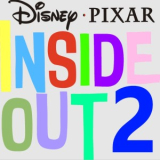









Leave a comment
Your comment is awaiting moderation. We save your draft here
0 Comments